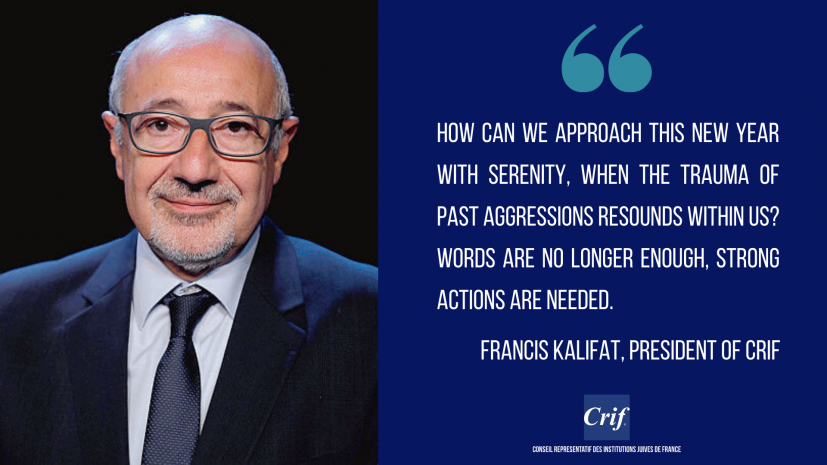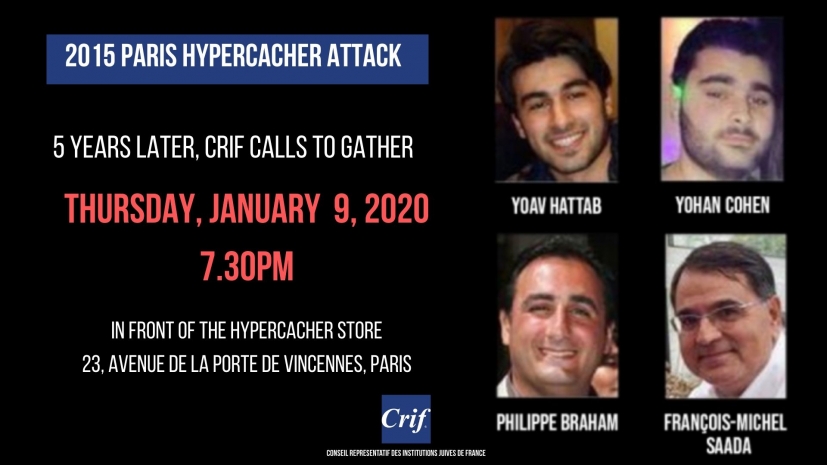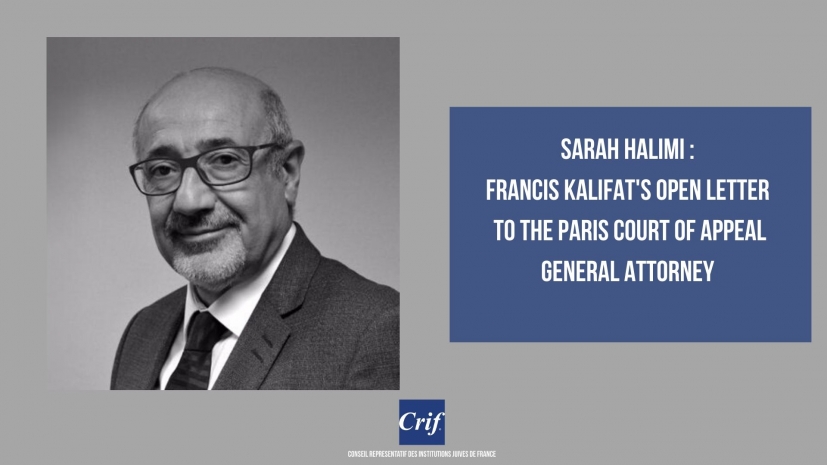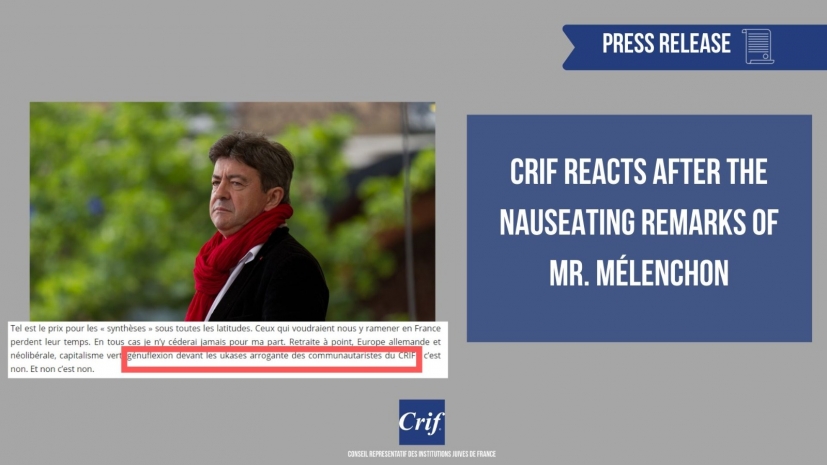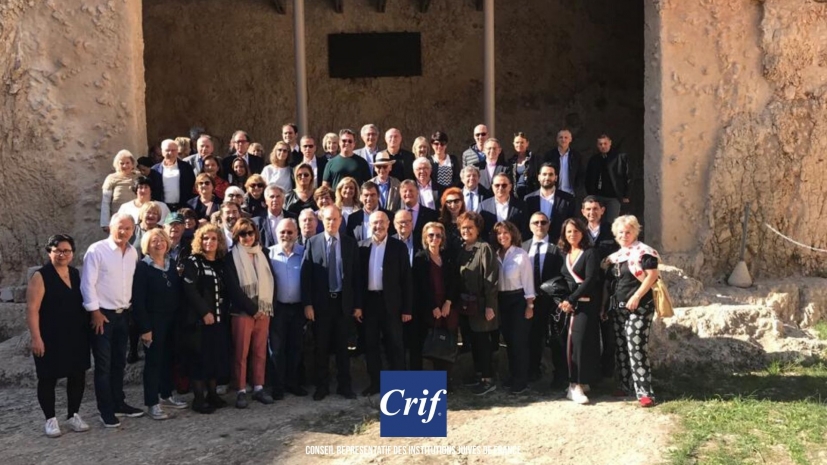News feed
Crif - The words of Francis Kalifat, President of Crif, for the new year
|
08 January 2020
Paris HyperCacher attack - 5 years later, Crif calls French people to gather
|
26 December 2019
Press Release - Crif reacts after the nauseating remarks of Mr. Mélenchon
|
17 December 2019
Crif - An important Crif delegation for a Mission in Israel
|
06 December 2019








